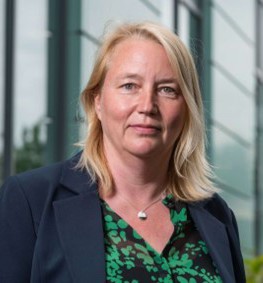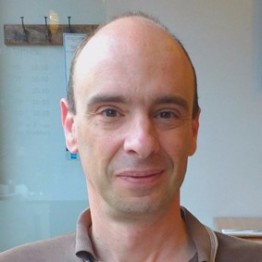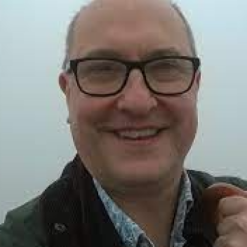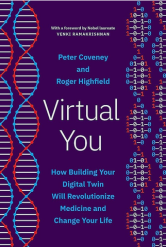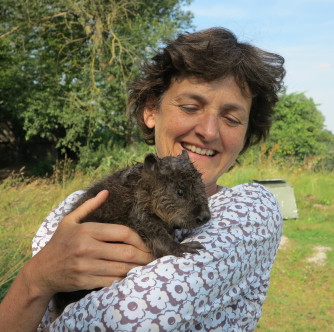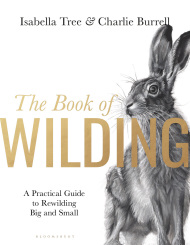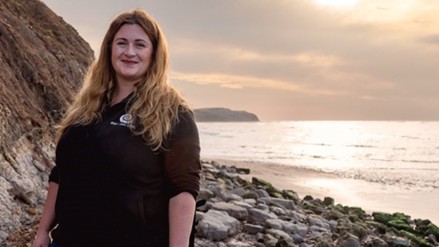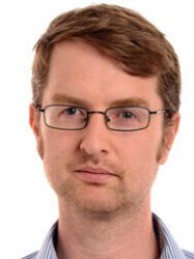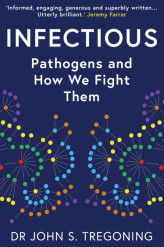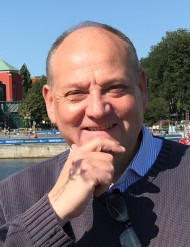
Professor Cath Green OBE is the 2024 ATOM Peagram Lecturer
The Oxford AstraZeneca Vaccine and Beyond
Catherine Green OBE is an Associate Professor in the Nuffield Department of Medicine at the University of Oxford. She heads the Clinical BioManufacturing Facility, where her mission is to translate innovative academic ideas into real world treatments.
During the COVID-19 pandemic Professor Green was part of the Oxford team who developed the Oxford–AstraZeneca COVID-19 vaccine.
Dr David Miles - A Brief History of Vaccines: from Cowpox to Covid
David Miles is an infectious disease immunologist who has worked mostly on diseases of childhood in Africa and the vaccinations that protect against them. He now lives in London and tutors on the London School of Hygiene and Tropical Medicine's online MSc course.
David Miles will be giving the introductory talk on the night of the Peagram Lecture.
Dr Roger Highfield - Virtual you: How building your digital twin will revolutionize medicine and change your life
Saturday, 16 March 2024, 7pm
The Amey Theatre, Abingdon School
Roger Highfield is the Science Director of the Science Museum Group, Fellow of the Academy of Medical Sciences, a visiting professor of public engagement at the Dunn School, University of Oxford, and Department of Chemistry, UCL, and a member of the UKRI-Medical Research Council. Roger has written or coauthored nine books, including Virtual You, and had thousands of articles published in newspapers and magazines. He was born in Wales, raised in north London and became the first person to bounce a neutron off a soap bubble, while doing his doctorate at the University of Oxford. He was the Science Editor of The Daily Telegraph for two decades and the Editor of New Scientist between 2008 and 2011.
Imagine having a digital copy of your body that can help you make better decisions about your health. That's the promise of digital twins, computer models that simulate every aspect of your body, from cells and tissues to organs and more. In this talk, Roger Highfield will share insights from his last book 'Virtual You', a panoramic account of efforts by scientists around the world - including his coauthor Peter Coveney - to build digital twins of human beings. He will explain how these virtual copies can usher in a new era of personalised medicine, one in which you can predict your risk of disease, participate in virtual drug trials, shed light on the diet and lifestyle changes that are best for you, and help identify therapies to enhance your well-being and extend your lifespan. The Financial Times made Virtual You one of the books of 2023.
A selection of Roger's books including "Virtual You" will be available for purchase on the night from our local seller, Mostly Books.
Isabella Tree
Sunday, 17 March 2024, 7pm
The Amey Theatre, Abingdon School
Isabella Tree is an award-winning writer and conservationist who lives with her husband, Charlie Burrell, in the middle of a pioneering rewilding project in West
Sussex. She is author of six non-fiction books, including the 2018 Richard Jefferies Society Literature Award-winning book Wilding: the return of nature to a British farm that was voted in the top
ten science books for 2018 by The Smithsonian.
In 2020 Isabella was awarded a CIEEM Medal for her contribution to ecology and environmental management, and in 2021 received the Royal Geographical Society’s Ness Award. Isabella and Charlie were
jointly awarded the Zoological Society of London’s Silver Medal ‘for outstanding contributions to the understanding and appreciation of zoology’ in 2023.
Her latest book, co-authored with Charlie, The Book of Wilding - a practical guide to rewilding big and small, (Bloomsbury, 2023) has been described as ‘a handbook of
hope’ and ‘a manual that builds hope for a better, wilder world’.
A selection of Isabella’s books will be available for purchase on the night from our local seller, Mostly Books.
Megan Jacobs - Discovering Abingdon's gigantic sea creature
Wednesday, 20 March 2024, 7pm
Roysse Room, Abingdon Guildhall
Megan Jacobs is a palaeontologist and PhD student at the University of Portsmouth. In May 2023, Megan and her colleague Professor David Martill, whilst visiting Abingdon Museum to research the ichthyosaur skeleton on display, discovered an enormous backbone in a drawer at Abingdon County Hall Museum belonging to a creature that swam in the seas that covered Oxfordshire 150 million years ago. After speaking to museum staff, it was discovered there were 3 more in the museum stores!
After looking at all the bones with Dr Steve Etches MBE, the team realised their suspicions were correct, these huge bones were vertebrate from a pliosaur – a marine reptile that could have been twice the size of a killer whale. These were found during excavations at Warren Farm in the River Thames Valley in Oxfordshire. Megan will talk to us about the discovery and about her ongoing palaeontology research of the marine reptiles in the Abingdon Collection.
Professor John Tregoning
Thursday, 21 March 2024, 7pm
Roysse Room, Abingdon Guildhall
Professor John Tregoning is Professor in Vaccine Immunology at Imperial College London where his group aims to understand what prevents symptomatic respiratory infections, focussing on the immune response.
John blogs about science and academic careers and has written for Nature, Science, Times Higher Education and The Guardian. During the COVID19 lockdown, he wrote a weekly diary for the Nature Career Column.
A selection of John's books including "Infectious - Pathogens and How We Fight Them" will be available for purchase on the night from our local seller, Mostly Books.
Russell Foster - LIFE TIME: The New Science of the Body Clock, and How It Can Revolutionize Your Sleep and Health
Saturday, 23 March 2024, 7pm
Council Chamber, Abingdon Guildhall
Professor Russell Foster is the Head of Oxford’s Nuffield Laboratory of Ophthalmology, the founder and Director of the Sleep and Circadian Research Institute and is a Fellow of Brasenose College Oxford. His research addresses how circadian rhythms and sleep are generated and regulated and what happens when these systems fail because of societal pressures, ageing and disease. A key finding has been his discovery and characterisation of an unrecognised light-detecting system within the eye that regulates circadian rhythms and sleep and, most recently, the translation of these findings to the clinic. For his work, Professor Foster was elected to the Fellowship of the Royal Society in 2008, the Royal Society of Biology in 2011 and the Academy of Medical Sciences in 2013. Russell was honoured by being appointed as a Commander of the British Empire (CBE) in 2015 for services to science. He has been a member of the Governing Council of the Royal Society and he established and led for six years the Royal Society Public Engagement Committee. He was the Chair of the Cheltenham Science Festival for six years and a Trustee of the Science Museum for eight years. He is currently a member of the scientific advisory board of the Eden Project. Professor Foster has published over 300 scientific papers and has received multiple national and international awards, including most recently the “Daylight Prize”. He has co-written four popular science books and his fifth with Penguin entitled Life Time was published in May 2022 and is a best-seller in both hard-and paperback. He is currently working on a new book about the role of light on our biology and thought.

